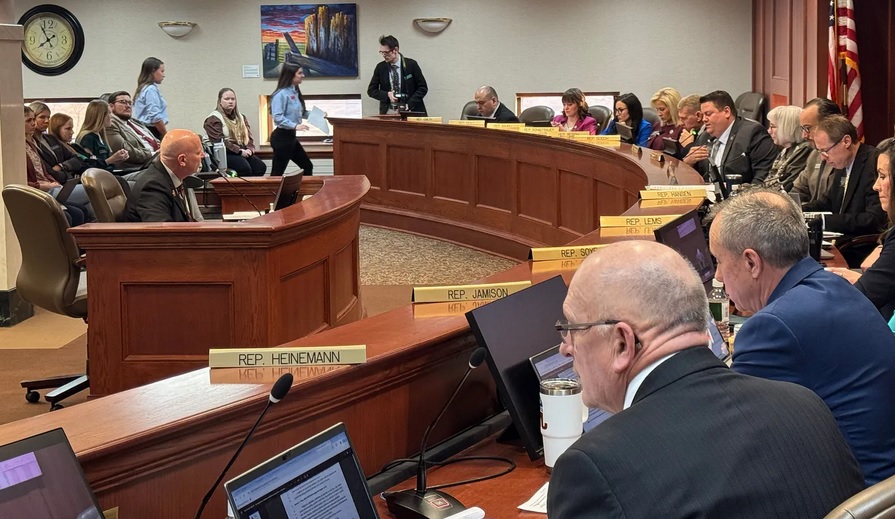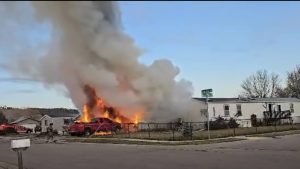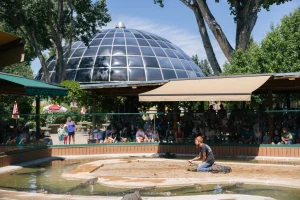PIERRE — When the majority of the new South Dakota legislative leadership team took over last November, they vowed to make banning “eminent domain for private gain” their top priority.
They made good on that vow Tuesday, at least when it comes to carbon pipeline companies.
The Senate sent House Bill 1052 to Gov. Larry Rhoden’s desk by a 23-12 vote, the latest and most pivotal moment in the years-long battle over Summit Carbon Solutions and its plan to build a roughly 2,500 mile carbon capture pipeline across eastern South Dakota and four other states in the region.
The measure, just a sentence long, would ban carbon oxide capture pipelines from using eminent domain for the purposes of their project. It sailed through a House committee, off the House floor and easily cleared the Senate State Affairs Committee Monday — on its way to what felt like a pre-ordained, but long awaited final legislative hurdle Tuesday afternoon.
“I cannot stress to you how big of an issue this is across the state,” said Sen. Mark Lapka, the bill’s co-sponsor who was one of over a dozen lawmakers to seize a state legislative seat last year while riding a wave of anti-carbon pipeline sentiments. “This will not stop any projects from taking place in the state of South Dakota… This is not a ban. This is a requirement that good negotiations in good faith are going to have to take place.”
The final legislative showdown on HB 1052, which took place with a full gallery of viewers, was not without its contentious moments. Sen. David Wheeler of Huron proposed an amendment that would have allowed eminent domain for projects like Summit’s should companies secure a permit from the Public Utilities Commission and got 75 percent of landowners on the permitted route to sign voluntary easements.
Wheeler and fellow amendment proponents said that the door should not be slammed shut on companies like Summit, who presented economic opportunities to the state’s agricultural community.
“They have to go across the entire state, they have to deal with hundreds and hundreds of people,” Wheeler explained. “If you get a bloc of them, who are opposed to the project for any reason, they can stop progress on anything.”
Sen. Casey Crabtree, one of the architects of the ill-fated Senate Bill 201 last session, noted the nominal support the Trump administration had given to energy development. Trump’s Secretary of the Interior Doug Burgum is the former governor of North Dakota, and a staunch supporter of Summit’s effort. The project is slated to end in the Peace Garden State, where it will bury the carbon underground.
“There isn’t a single person on this floor that doesn’t care and respect property rights,” Crabtree said. “I also care about the property rights of every other farmer in this state whose property rights are being impacted by those who do not want to move forward on this. We are shutting the door on an opportunity, we are changing the rules in the middle of the game.”
Ironically, Wheeler’s amendment resembled legislation brought by carbon pipeline skeptical lawmakers over the last two legislative sessions. Rep. John Sjaarda brought a 90 percent threshold bill in 2024 and Rep. Karla Lems, one of the chief opponents in the House, brought a similar bill in 2023.
But after a statement primary election and referred law on the matter in 2024, the appetite for negotiations was gone, said Sen. Tom Pischke.
“We are well past the time of compromise, unfortunately,” he said.
That amendment failed, 21-14. Sen. Amber Hulse of Hot Springs switched her vote at the last second.
Both sides of the debate ceded that there was not much left to be said on the topic, which has dominated legislative conversations for three years. Rallies, text messages and e-mail campaigns, and contentious county commission meetings in areas where the pipeline was planned, have punctuated the conversation in Pierre.
“We’ve probably all made our mind up on what we are doing here,” Pischke said. “Private companies should not be allowed to take land against the owners’ will… This measure doesn’t get lost in legalese, or half-measures, it goes straight to the heart of the issue.”
HB 1052 passed the Senate by a 23-12 vote, one short of a veto-proof majority, but still plenty enough to send it to Rhoden for consideration. A spokeswoman for his office did not immediately respond to a request for comment about whether the governor would sign the measure — he’s side-stepped previous inquiries during legislative press conferences this session, saying that he prefers to let the measure make its way through the legislative process before weighing in.
In a statement to South Dakota Broadcasters Association, Summit Carbon Solutions said that the company has signed easement agreements with more than 500 landowners in South Dakota to secure “economic benefits for farmers and ethanol producers in the upper Midwest.”
“The company has received permits in Iowa, North Dakota, and Minnesota with unanimous approvals based on the project’s safety, economic benefits and importance to American energy dominance,” a spokeswoman for the company wrote. “South Dakota should be a part of that future… (And) We are moving forward in other states.”





